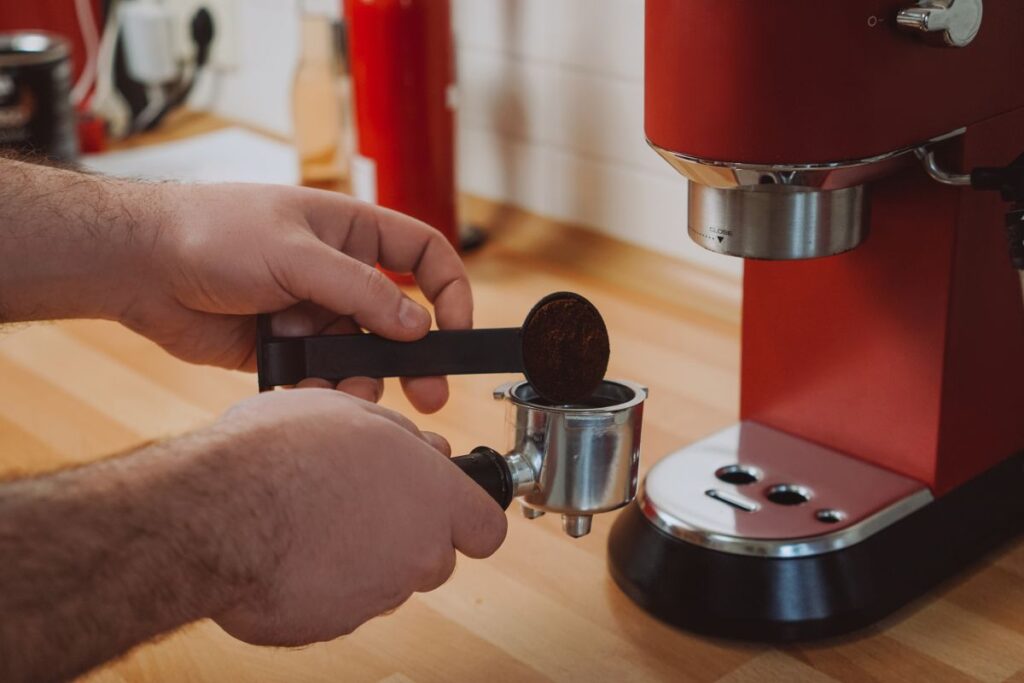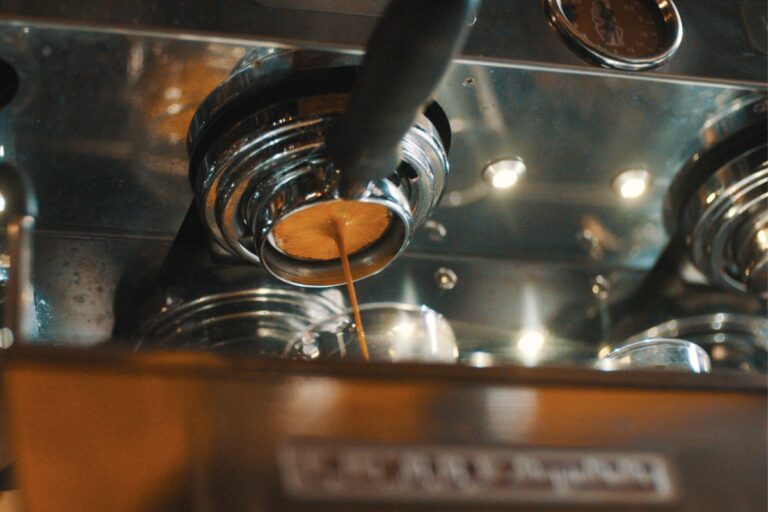Commercial espresso machines vs. home-use ones – what is the difference?
Why does your favorite coffee place use a $10K espresso maker when cheaper, smaller models are available?
I will show you the differences between commercial espresso machines and home-use ones.
After reading this article, you will have enough info to pick the appliance for your needs.
That, consequently, will save you a pile of money. Let’s start saving!
By Jozo Salmanić – Croatian barista with 15 years of experience.
Affiliate disclosure
This page may contain affiliate links – we may earn a small commission when you make a purchase through these links. This is at no extra cost to you.
Who Needs An Espresso Machine For Commercial Use?
If your premise makes more than 50 cups of coffee daily (on average), you will need a commercial espresso machine.
If you need a small coffee maker for your home, office, or any small-scale premise, you should go with the home line of products.
Commercial Espresso Machines VS. Home-Use Ones – The Main Differences
Can Your Espresso Maker Get The NSF Seal?
NSF seal is the seal from the National Sanitation Foundation.
Getting this seal for your coffee machine means the machine is built using materials approved by the US Food and Drug Administration.
If you want to get the NSF seal, your espresso machine must be made from materials that do not present any health hazard to you, your workers, and your customers.
Home-use espresso makers are not built for heavy use and might present a safety risk.
How Much Do You Use Your Espresso Maker Every Day?
Commercial espresso machines are built to make espresso all day, every day.
You can have several baristas working at once, and the machine will effortlessly brew a couple of hundred drinks during working hours.
And still, it will last for decades.
Home-use machines are meant for low usage – your family or a smaller office. Hence, up to 50 drinks per day.
Excessive use will wear these smaller machines.
If heavily used, cheaper models will last just a couple of years.
4 Coffee Gear & Coffee Recommendations
- Breville Barista Pro – An excellent manual espresso machine for home use
- Philips 3200 Series Espresso Machine – Easy-to-use fully automatic coffee machine for small office or home use
- Rancilio Egro ONE Touch – High capacity fully automatic commercial coffee machine for professional use
- Koa Coffee – Premium hand-picked Hawaiian coffee. Have you tried American coffee yet?
What Is Your Espresso Maker Made Of?
Crowded coffee shops need commercial machines. Heavy and metal body means they cannot be easily tossed and turned. That also helps with the cleaning.
They can have a beautiful design, but durability and robustness are something you strive for.
You never use smaller machines in a hurry.
Hence, they don’t have to be that rugged, and most have plastic bodies.
That makes them cheaper and easier to relocate. The metal models are much pricier. These smaller coffee makers are sometimes works of art.
Plastic is the cheapest material, and stainless steel is the priciest and the most reliable material.
Group Head And Steam Wands
Group head or brew group “…is where espresso is extracted.” – says this handy article from TheCoffeeBrewers.
As a rule of thumb, espresso machines for home use have only one brew group, accompanied by one or zero steam wands.
Commercial espresso machines always have at least two brew groups. Some of them have two steam wands.
That makes these machines more efficient, as two baristas can work simultaneously.
If you don’t know how many group heads you need, here is a handy guide:
up to 50 cups of coffee every day – one group head
100 to 200 cups – two group heads
200 to 300 cups – three group heads
more than 300 – four group heads
Installation – Water And Electricity
Home-use espresso machines have a power cord that fits standard outlets in the home or office.
These machines are usually not directly connected to the plumbing system.
Instead, they have small separate water reservoirs that you fill. They do not need a drainage system.
Large commercial machines are usually directly connected to the plumbing system and drain system of the building.
As for the electricity part, commercial machines work on 220 V, although some of them can be modded to work on 110V.
Commercial machines are surprisingly easy to install, and you can use this article from Coffee Machine Depot USA as a reference.
If you are not that handy (or licenced, if needed), leave it to the pros. It will save you some headaches in the future.
Maintenance And Limescale
Both types of espresso machines must be well-cleaned and maintained. Of course, the difference is in the amount of use.
Commercial coffee makers, just like cars, must undergo periodic maintenance after making a certain number of coffees.
This interesting article written by Daniel Erasmus can give you more insights about the maintenance needed.
Limescale is the arch-enemy of your coffee machines. Use distilled water for your coffee machines that are not connected to the pipeline.
For the ones directly connected, use a water softener.
Cost – Why Are Commercial Coffee Makers So Expensive?
They are not. Only the initial investment is high.
With a commercial coffee machine, you get strength, durability, robustness, and quality.
You can hire two baristas and survive any rush hour, including Fridays and holidays.
Commercial espresso makers will effortlessly pay off if you have enough guests.
Always consider them an investment, never a cost.
Home-line espresso makers can also be costly.
However, good models will give you all the functions of a commercial machine, and you will be able to make equally good espresso.
Don’t go for cheap plastic knockoffs.
Can I Use A Commercial Espresso Machine For Home?
Of course, you can, my friend, and nobody can stop you.
But using a commercial espresso machine to make a couple of espressos every day is a definition of overkill.
The espresso will be good, and the latte will be foamy, but you can accomplish all that with a decent home-use coffee machine.
Higher tie home models will give you the same espresso (and latte) as commercial machines.
Buying a commercial espresso machine for home use is an enormous waste of money.
These machines will spend a lot of extra electricity.
They also lose on price, so don’t expect to sell them fast after your first electricity bill shocks you.
Can I Use A Home And Office Coffee Machine In A Coffee Shop?
Technically, you can, if they are NSF-approved.
However, small coffee machines:
- are not practical for rush hour
- can be used by only one barista
- will break down in a record amount of time
- in the long run, they will cost you more
If your coffee shop makes 2-3 dozen cups of coffee every day, you can use a small coffee machine for some time.
But you will still need a commercial one.

Some final thoughts
In the end, there is a reason why commercial coffee machines are called that way.
You buy commercial machines to make a lot of coffee and sell that coffee to make a lot of money.
That’s something a small espresso maker can’t help you with.
Lorem ipsum dolor sit amet, consectetur adipiscing elit. Ut elit tellus, luctus nec ullamcorper mattis, pulvinar dapibus leo.








